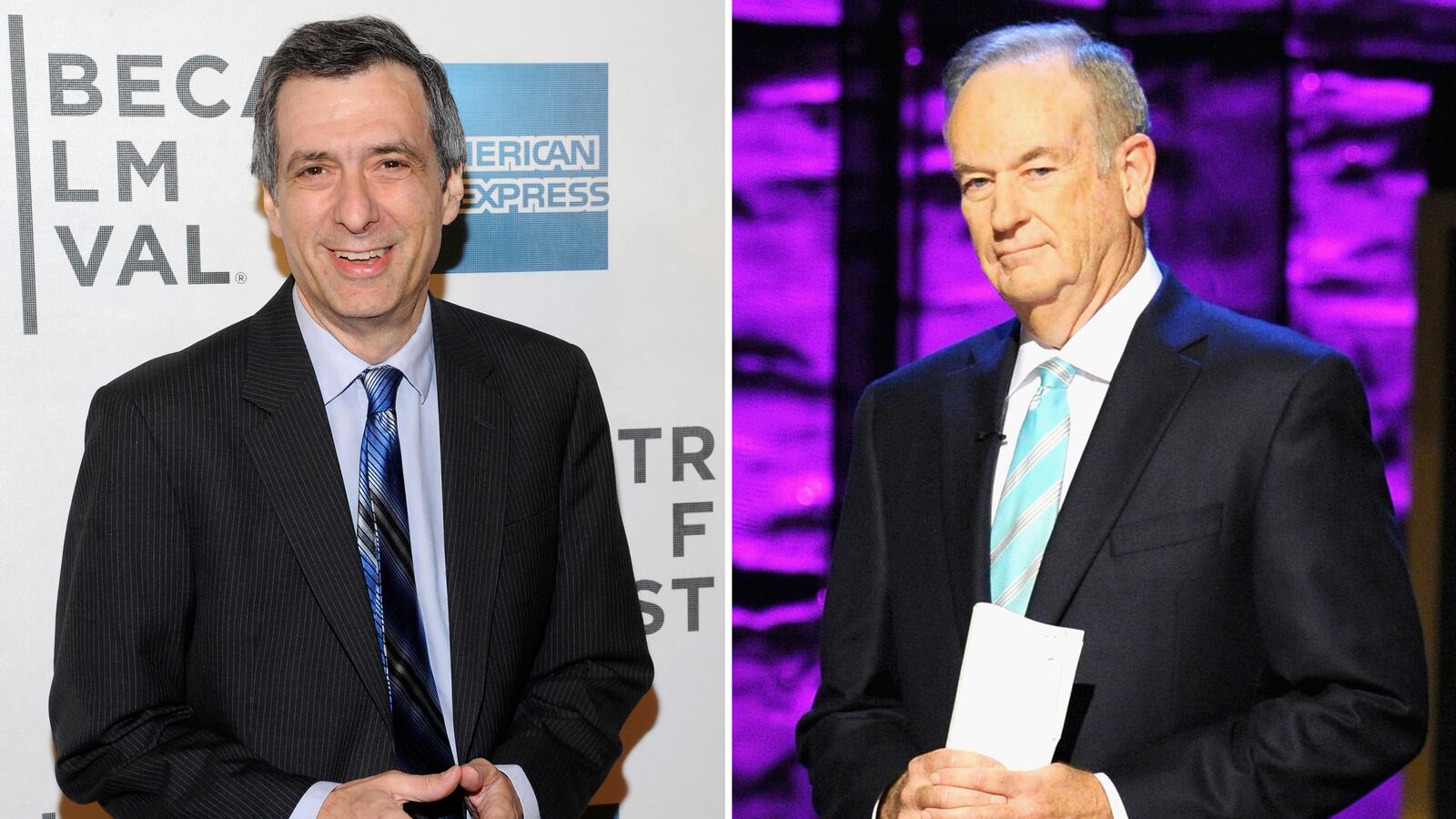Well, I seem to have survived my visit to the fox’s lair.

Got a couple of scratches, but I don’t think Bill O’Reilly drew any blood.
It was a contentious appearance on The Factor on Wednesday, as I knew it would be. When you criticize O’Reilly, as I did on my CNN program Reliable Sources, he doesn’t take kindly to that.
But the bottom line is he was fair and I got to make my points, given all the limitations of a short and confrontational television interview.
I even made a couple of points the Fox News host should have agreed with. But he quickly pivoted back to his main argument, that I had misrepresented his remarks. It’s his show, so he sets the agenda. My job was to be in the hot seat.
For those just tuning in, O’Reilly last week was arguing that the media were far more interested in the waterboarding debate under George W. Bush than in holding President Obama accountable for his drone warfare program. Then he said: “You heard anything on NBC about the drones?”
Which was strange, because NBC’s Mike Isikoff had just reported on a Justice Department memo detailing the legal rationale for killing suspected terrorists by remote control. The next night, O’Reilly complained that “the far-left machine” had distorted his remarks, prompting my critique that he had made a rather sizable omission in skewering NBC. That, in turn, prompted him to rip me for allegedly defending a “double standard” in media coverage.
A typical television feud, in other words, leading to my sitting in a tiny Washington studio, staring at a lone camera, while he held forth from his set in New York.
As we got under way, O’Reilly made the distinction that he was talking about commentary on the waterboarding-vs.-drones question, not the news coverage. I didn’t buy it. He had avoided the elephant in the room—that NBC’s scoop had kick-started a debate over the morality of the drone program.
I declared that I had already won the debate because O’Reilly had acknowledged on Monday, the day he slapped me around, that “yes, I guess I should have mentioned it.”
Uh uh. O’Reilly said he merely meant that by mentioning NBC’s exclusive he would have avoided all the “nonsense” that followed.
I argued that some news organizations, such as Newsweek and The New York Times, had done serious reporting on the drone program. The Times, for instance, wrote last year: “Mr. Obama is the liberal law professor who campaigned against the Iraq war and torture, then insisted on approving every new name on an expanding kill list.”
O’Reilly chided me for bringing reportage into a discussion about commentary—meaning he didn’t want to engage on my point.
I tried to move us to higher ground, saying the mainstream press was giving Obama the benefit of the doubt on national security in a way that it had not done for Bush. Bill didn’t bite. Strange, because he could have declared victory on his ideological argument and gone to break.
But there was one crucial difference, I argued. There was an emotional national debate, led in part by Sen. John McCain, over whether waterboarding was torture. But there’s been very little debate over drone strikes, which almost never came up in the presidential campaign or debates. That’s in part because Republicans like them and Democrats are backing the president, and that has allowed the press to remain passive—as it was during the runup to the Iraq war.
O’Reilly sidestepped that argument as well. He switched to a more general inquisition about media “hypocrisy”: “They’re in the tank for Obama.” He asked why I haven’t done more on the drones. I said I’d been questioning the coverage of Obama since 2007 and 2008, when it was way soft, but that many journalists had grown more skeptical in the president’s first term.
Oh, and I got interrupted a few times. No law against that. Next thing I knew O’Reilly was thanking me and suggesting my ratings would go up if I replayed our exchange.
Hey, maybe his ratings went up as all my fans tuned in.
It was a civil argument that perhaps shed a bit of light on journalism, the president, and the war on terror. At least by television standards.





